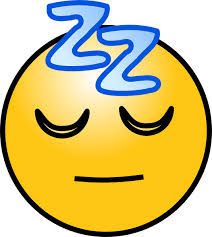When I wrote my article on ‘how to boost your child’s immunity’ for the September issue of ParentEdge, I was surprised at the number of health care professionals talking about adequate sleep, not just during illness but otherwise as well. Also routine for meals and sleep time was stressed a lot. In the past few months I came across a few articles in ‘The Hindu’ — ‘we sleep to clean our brains’ , ‘sleep deprived teenagers may be at risk of long term damage to the wiring of the brain’. To add to my growing concern and curiosity, recently a friend gave me a book on parenting (Nurture Shock, Bronson and Merryman) which has a chapter titled the ‘The Lost Hour’. That’s when I decided I really need to blog on ‘sleep’ because as parents, many of us may not be giving ‘sleep’ the attention it actually deserves!
Highlights from this enlightening chapter – ‘the lost hour’
There is research to show that around the world children are getting an hour less to sleep than what they got thirty years ago! Well it may seem rather inconsequential but apparently this is affecting IQ points, causing moodiness, depression, and also in some cases fuelling ADHD and binge eating! Things that we definitely cannot ignore!
Of course we all are aware of what is fuelling this lost hour – televisions (24/7 and hundreds of channels), computer time, and mobiles in bedrooms and of course academic pressure in schools is as taxing or worse! Now sleep scientists are saying inadequate sleep could cause permanent damage as a child’s brain continues to develop till the age of 21 and much of the work happens when the child is asleep!
In an interesting study done with 4th and 6th graders where children got instructions to go to bed earlier or later by 30 minutes for three days, results on standard computerised test used to rate a child’s performance and ability to maintain attention in class, showed that losing one hour of sleep is equivalent to losing 2 years of cognitive maturation i.e. the sixth graders performed like fourth graders! Other studies are finding similar results and even late weekend bedtimes for preschoolers can affect standard IQ test results by 7 points. So there seems to be a correlation between sleep and school performance!
So what is happening actually?
When children do not get sufficient sleep, they are tired, the neurons, lose their plasticity and ability to form new connections required to encrypt memory. So this could mean –difficulty in improving vocabulary, memorising tables, history dates ..!
The brain needs a constant supply of glucose to function and with sleep loss, the body’s ability to obtain glucose from the blood gets affected. This in turn hampers the functioning of the frontal part of the brain which is responsible for ‘executive function’. So tired children have difficulty in studying and probably find tasks like watching television or playing mindless games easier!
The sleep pattern for children is different from adults – children spend 40% of their sleep time in deep slumber without dreams and during this stage their brains are shifting what they have learnt during the day to efficient storage regions! Actually the more they learn during the day, the more they need to sleep at night!!
Another interesting finding is that positive memories get processed in the deep slumber stage, so lack of it means a child will retain/remember more of the bad memories than the nice ones ![]()
Finally there is a link between sleep deprivation and obesity. This happens as hunger stimulating hormones are activated more than the one that suppress appetite. Also there is an increase in the level of stress hormone, which is known to stimulate fat accumulation. Hormones required for breaking down fat are secreted in the beginning of sleep and if sleep is disrupted the process does not work!
Clearly SLEEP MATTERS especially for children! We may be trying to address concerns in all other areas but ignoring this important need! So don’t try to add one more activity that you think might help your child –get her to bed early you may do her brain a favour!
——————–
So how much is enough?
3-6 year olds need 10-12 hours of sleep, children in the age group of 7–12 years need 10- 11 hours and 12-18 year olds need 8-9 hours of sleep.
ZZZZ………………
Re-published with permission from the blog of ParentEdge, a bi-monthly parenting magazine that aims to expose parents to global trends in learning and partner with them in the intellectual enrichment of their children. This blog was written by Meera Srinivasan, health and nutrition specialist on the ParentEdge editorial panel.
